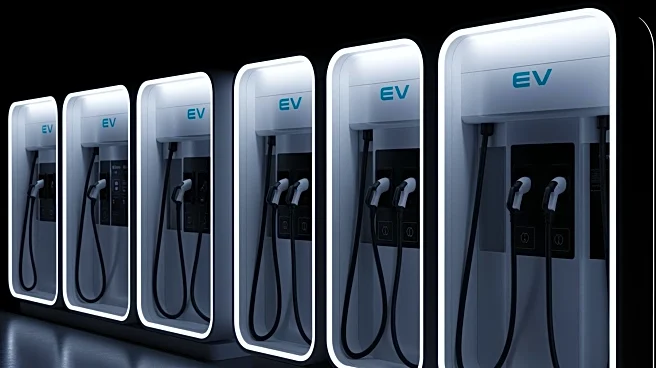What's Happening?
Hyundai has experienced a substantial drop in electric vehicle (EV) sales following the expiration of federal tax credits. In October, Hyundai's sales of fully electric vehicles fell sharply, with the IONIQ
5 model seeing a 63% decrease compared to the previous year. This decline is part of a broader trend affecting other automakers like Ford, Kia, and Honda, which also reported reduced EV sales after the tax credit ended. Despite the downturn in EV sales, Hyundai's overall vehicle sales remain strong, with a record number of 'electrified' vehicles sold, driven primarily by hybrid models. Hyundai's CEO, Randy Parker, noted that the demand for EVs was strong leading up to the expiration of the tax credits, but the market has been temporarily disrupted by the policy change.
Why It's Important?
The decline in Hyundai's EV sales highlights the significant impact of federal tax incentives on consumer purchasing behavior in the electric vehicle market. The expiration of these credits has led to a noticeable drop in sales, suggesting that financial incentives play a crucial role in driving EV adoption. This situation underscores the challenges automakers face in maintaining EV sales momentum without government support. The broader implications for the U.S. auto industry include potential shifts in market strategies, as companies may need to adjust pricing or offer new incentives to attract buyers. The situation also raises questions about the sustainability of EV market growth in the absence of such incentives.
What's Next?
Hyundai is optimistic about the future of its EV sales, with plans to reset the market following the policy changes. The company has reduced prices on its 2026 IONIQ 5 model and continues to offer significant savings on other models to attract buyers. As the market adjusts, Hyundai and other automakers may explore alternative strategies to sustain EV sales, such as enhancing vehicle features or expanding charging infrastructure. The response from consumers and the effectiveness of these strategies will be critical in determining the long-term trajectory of the EV market in the U.S.










